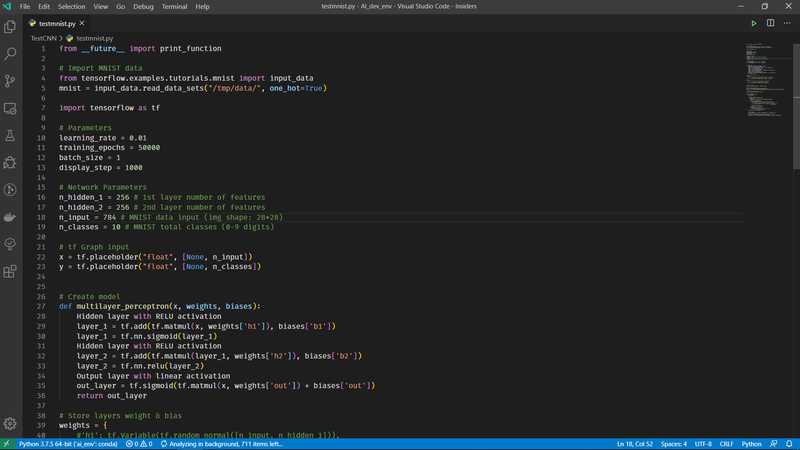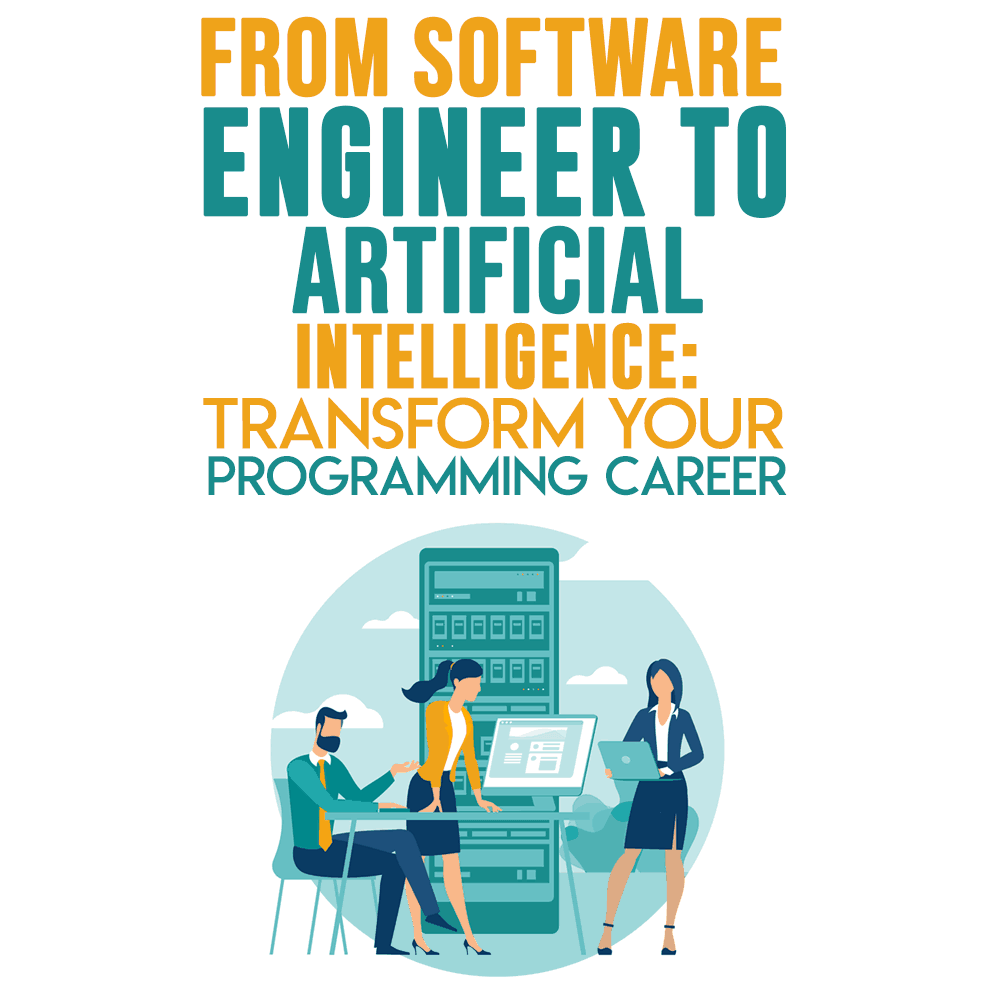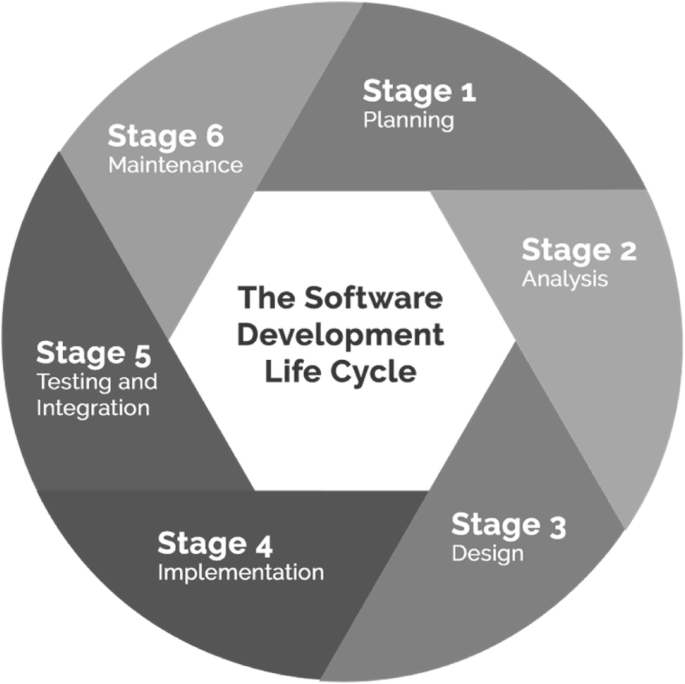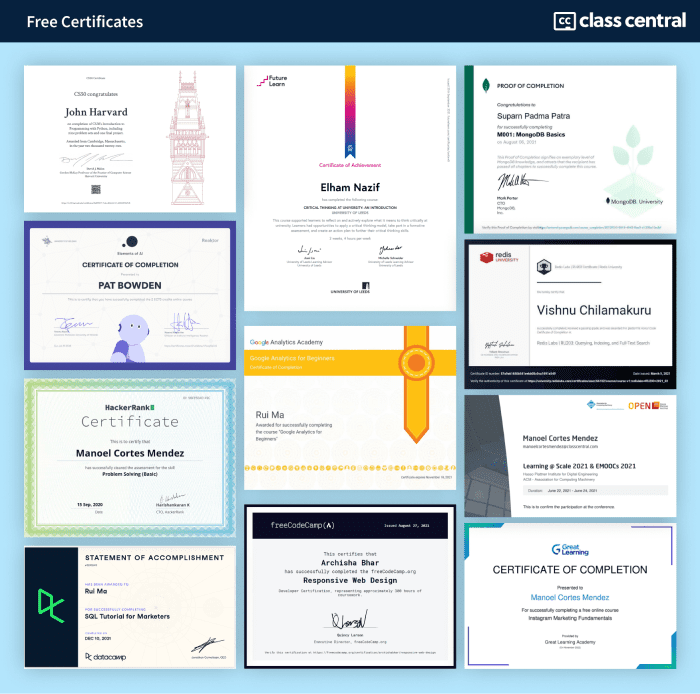All Categories
Featured
Table of Contents
- – Machine Learning Engineer Vs Software Engineer...
- – What Does Software Developer (Ai/ml) Courses -...
- – How How To Become A Machine Learning Engineer...
- – Not known Facts About How To Become A Machine...
- – Machine Learning Developer Can Be Fun For Ev...
- – 7 Easy Facts About How To Become A Machine L...
- – Excitement About How To Become A Machine Lea...
Some individuals believe that that's cheating. If somebody else did it, I'm going to utilize what that person did. I'm forcing myself to assume via the possible services.
Dig a little bit deeper in the mathematics at the beginning, so I can construct that structure. Santiago: Ultimately, lesson number 7. This is a quote. It states "You need to comprehend every information of an algorithm if you intend to use it." And afterwards I say, "I believe this is bullshit advice." I do not believe that you need to recognize the nuts and screws of every algorithm prior to you use it.
I have actually been using neural networks for the lengthiest time. I do have a sense of exactly how the slope descent works. I can not describe it to you today. I would certainly have to go and check back to in fact obtain a much better instinct. That does not imply that I can not solve points using semantic networks, right? (29:05) Santiago: Trying to compel people to believe "Well, you're not going to be effective unless you can describe each and every single detail of how this works." It returns to our arranging instance I believe that's simply bullshit guidance.
As a designer, I've dealt with numerous, lots of systems and I've made use of many, several points that I do not comprehend the nuts and screws of how it works, also though I comprehend the effect that they have. That's the final lesson on that string. Alexey: The amusing point is when I think of all these collections like Scikit-Learn the algorithms they utilize inside to execute, for instance, logistic regression or something else, are not the like the formulas we study in maker discovering classes.
Machine Learning Engineer Vs Software Engineer Things To Know Before You Buy
Even if we attempted to learn to get all these basics of device discovering, at the end, the formulas that these collections make use of are different. Right? (30:22) Santiago: Yeah, absolutely. I think we require a whole lot extra pragmatism in the market. Make a whole lot even more of an influence. Or concentrating on providing worth and a little bit less of purism.

By the means, there are 2 various paths. I generally talk to those that intend to operate in the market that wish to have their impact there. There is a path for researchers which is completely different. I do not dare to discuss that due to the fact that I don't understand.
Right there outside, in the industry, materialism goes a lengthy method for certain. Santiago: There you go, yeah. Alexey: It is an excellent motivational speech.
What Does Software Developer (Ai/ml) Courses - Career Path Mean?
Among things I wished to ask you. I am taking a note to speak concerning progressing at coding. However initially, let's cover a pair of things. (32:50) Alexey: Let's begin with core tools and structures that you require to learn to in fact transition. Let's claim I am a software designer.
I understand Java. I know exactly how to utilize Git. Possibly I recognize Docker.
Santiago: Yeah, definitely. I believe, number one, you need to start finding out a little bit of Python. Since you already understand Java, I don't think it's going to be a significant transition for you.
Not because Python is the very same as Java, yet in a week, you're gon na get a lot of the differences there. Santiago: Then you get specific core devices that are going to be utilized throughout your whole occupation.
How How To Become A Machine Learning Engineer can Save You Time, Stress, and Money.
You obtain SciKit Learn for the collection of equipment learning algorithms. Those are devices that you're going to have to be utilizing. I do not recommend simply going and finding out regarding them out of the blue.
Take one of those programs that are going to start introducing you to some troubles and to some core ideas of equipment learning. I don't bear in mind the name, however if you go to Kaggle, they have tutorials there for free.
What's great about it is that the only demand for you is to know Python. They're going to offer an issue and tell you just how to use decision trees to address that certain issue. I assume that process is very powerful, due to the fact that you go from no machine finding out background, to understanding what the issue is and why you can not solve it with what you understand now, which is straight software application engineering techniques.
Not known Facts About How To Become A Machine Learning Engineer (With Skills)
On the various other hand, ML engineers specialize in structure and releasing device understanding designs. They concentrate on training designs with data to make forecasts or automate tasks. While there is overlap, AI engineers take care of more varied AI applications, while ML designers have a narrower focus on device learning formulas and their functional implementation.

Artificial intelligence engineers focus on developing and releasing artificial intelligence designs into production systems. They deal with engineering, making certain designs are scalable, effective, and integrated right into applications. On the other hand, information scientists have a wider duty that includes data collection, cleansing, expedition, and building versions. They are commonly accountable for extracting insights and making data-driven decisions.
As organizations progressively take on AI and maker understanding technologies, the need for experienced specialists expands. Machine understanding engineers function on sophisticated projects, add to technology, and have competitive wages.
ML is basically various from conventional software application advancement as it concentrates on mentor computer systems to pick up from data, rather than programming specific guidelines that are carried out methodically. Unpredictability of outcomes: You are probably used to creating code with predictable outputs, whether your function runs once or a thousand times. In ML, however, the results are less specific.

Pre-training and fine-tuning: Exactly how these versions are trained on huge datasets and after that fine-tuned for details jobs. Applications of LLMs: Such as text generation, view evaluation and info search and retrieval. Papers like "Attention is All You Required" by Vaswani et al., which introduced transformers. On-line tutorials and courses concentrating on NLP and transformers, such as the Hugging Face program on transformers.
Machine Learning Developer Can Be Fun For Everyone
The capacity to manage codebases, combine modifications, and deal with disputes is simply as essential in ML advancement as it is in standard software program projects. The skills established in debugging and screening software applications are very transferable. While the context could transform from debugging application logic to determining problems in data processing or design training the underlying principles of methodical examination, hypothesis testing, and iterative improvement are the exact same.
Equipment discovering, at its core, is greatly reliant on stats and possibility theory. These are vital for recognizing exactly how formulas find out from information, make predictions, and assess their performance.
For those curious about LLMs, a comprehensive understanding of deep learning designs is helpful. This includes not just the mechanics of neural networks but additionally the design of specific versions for various use instances, like CNNs (Convolutional Neural Networks) for photo handling and RNNs (Frequent Neural Networks) and transformers for consecutive data and all-natural language handling.
You ought to recognize these problems and discover techniques for recognizing, alleviating, and interacting regarding prejudice in ML versions. This includes the potential effect of automated decisions and the moral implications. Lots of models, specifically LLMs, need substantial computational sources that are frequently supplied by cloud systems like AWS, Google Cloud, and Azure.
Structure these abilities will not only facilitate a successful shift into ML however additionally ensure that designers can add effectively and responsibly to the advancement of this vibrant area. Theory is vital, however nothing defeats hands-on experience. Begin functioning on jobs that allow you to use what you've learned in a practical context.
Build your projects: Beginning with easy applications, such as a chatbot or a text summarization device, and progressively raise intricacy. The area of ML and LLMs is quickly evolving, with new advancements and technologies arising consistently.
7 Easy Facts About How To Become A Machine Learning Engineer (With Skills) Explained
Contribute to open-source jobs or compose blog posts about your knowing journey and tasks. As you gain know-how, begin looking for possibilities to include ML and LLMs into your work, or seek new roles concentrated on these modern technologies.

Vectors, matrices, and their role in ML algorithms. Terms like design, dataset, attributes, tags, training, inference, and validation. Data collection, preprocessing techniques, design training, evaluation processes, and release considerations.
Decision Trees and Random Forests: User-friendly and interpretable designs. Support Vector Machines: Maximum margin classification. Matching problem types with ideal versions. Stabilizing performance and complexity. Basic framework of neural networks: neurons, layers, activation functions. Layered calculation and ahead proliferation. Feedforward Networks, Convolutional Neural Networks (CNNs), Frequent Neural Networks (RNNs). Image recognition, sequence prediction, and time-series analysis.
Information circulation, change, and feature design methods. Scalability principles and efficiency optimization. API-driven approaches and microservices assimilation. Latency administration, scalability, and variation control. Continual Integration/Continuous Implementation (CI/CD) for ML operations. Design tracking, versioning, and performance tracking. Discovering and attending to changes in model performance with time. Addressing efficiency bottlenecks and resource administration.
Excitement About How To Become A Machine Learning Engineer & Get Hired ...

You'll be introduced to three of the most pertinent components of the AI/ML self-control; monitored learning, neural networks, and deep understanding. You'll comprehend the differences in between standard programming and device discovering by hands-on advancement in supervised understanding prior to developing out complex distributed applications with neural networks.
This program works as a guide to machine lear ... Show Much more.
Table of Contents
- – Machine Learning Engineer Vs Software Engineer...
- – What Does Software Developer (Ai/ml) Courses -...
- – How How To Become A Machine Learning Engineer...
- – Not known Facts About How To Become A Machine...
- – Machine Learning Developer Can Be Fun For Ev...
- – 7 Easy Facts About How To Become A Machine L...
- – Excitement About How To Become A Machine Lea...
Latest Posts
Data Science Vs. Data Engineering Interviews – Key Differences
Mock Coding Interviews – How To Improve Your Performance
How To Negotiate A Software Engineer Salary After A Faang Offer
More
Latest Posts
Data Science Vs. Data Engineering Interviews – Key Differences
Mock Coding Interviews – How To Improve Your Performance
How To Negotiate A Software Engineer Salary After A Faang Offer